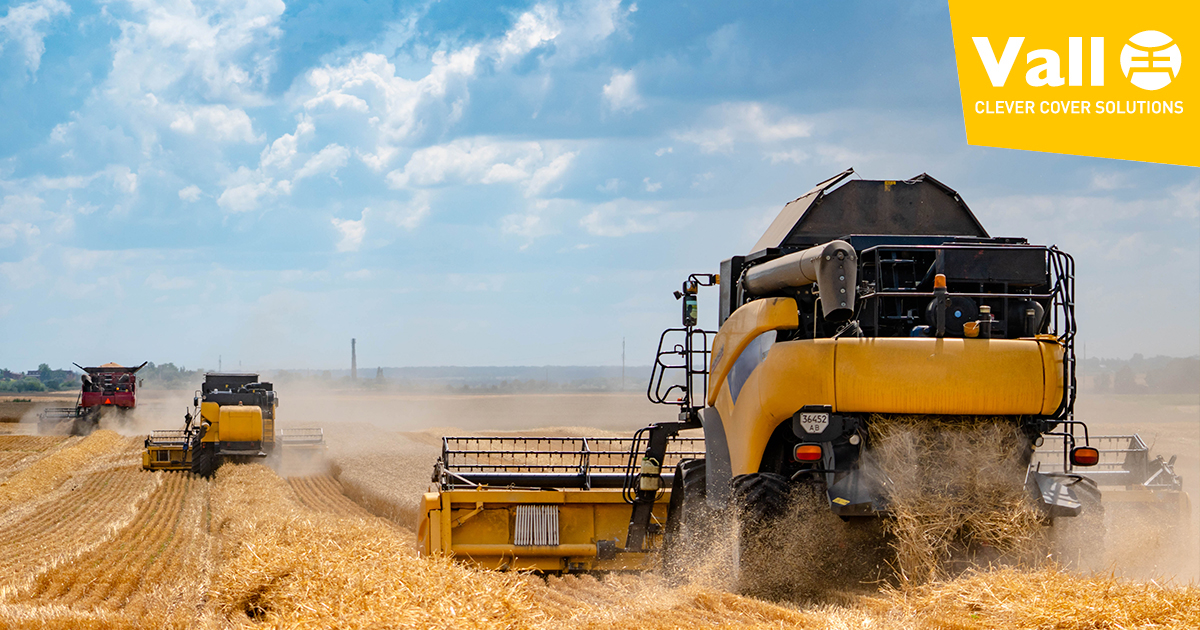To the challenges for logistics in 2022 , a new, powerful and sad one has been added: the war between Russia and Ukraine. It is not yet known what consequences it will have in terms of lives and the economy, but beyond the sad reality that people in this area suffer, the effects on sectors such as transport and logistics will see their activity affected.
Table of contents
At the moment we can only glimpse how the Russian-Ukrainian conflict affects logistics and the importance of this sector to avoid shortages of materials and products in Europe and outside the continent.
The obvious concern for human lives comes first. But we cannot stop contemplating how this war influences the economy of many countries. And how the way of life, jobs and production of small and large companies will be affected in some way in other parts of the world.

How the Russia-Ukraine conflict affects logistics.
The granary and the pantry of Europe, at war.
On February 18 we already pointed out from VALL the risks of geopolitics and the threat of war for the agri-food sector. Unfortunately, one of the most feared conflicts has broken out when the hope that it would not start still seemed strong.
These days there is a lot of talk about Ukraine as the breadbasket of Europe. The truth is that there are many countries in it and outside it that import food from Ukraine.
Some examples? 70% of the wheat imported by Egypt and Turkey comes from Russia and the Ukraine. China is the main importer of Russian corn. 42.2% of the cereals imported by Spain comes from Ukraine.
Taking into account just some of the many products it exports to the UK, EU countries and other parts of the world, Ukraine is:
- the fourth largest exporter of maize in the world
- the fourth of large potatoes
- the fifth of rye
- the eighth of wheat
- the ninth of chicken eggs.
In this situation, the risk of shortages is clear. Logistics must be prepared to store food safely. And for changes in transport routes between different trading partners from different countries.
Ukraine ports closed
Ukrainian ports The Ukrainian ports had a great logistical activity until they were closed a few days ago. The import and export of food, metals, microchips and other products has been stopped in its tracks. It is not possible to know when they will reopen, but experts say that it could be months or even years.
The flow of merchandise that ran through them has stopped. And it must find other ways to be able to move and not become losses in its home ports or on the high seas.
The veto to Russia.
The Russia-Ukraine conflict affects logistics in several ways. The veto of Western countries to Russia also implies drastic changes in imports and exports that had their origin or end in this country.
And China’s acceptance of becoming Russia’s preferred partner adds one more change to the complicated logistics board in the face of this armed conflict.
The risk of extension of the conflict.
Already on the second day of the war, Russian leaders threatened countries like Finland and Sweden. In Moldova , thousands of families fear the extension of the conflict and are prepared in case they have to become refugees. Nations like Poland, Romania and Bulgaria are preparing to receive hundreds of thousands of people fleeing war and in need of everything. Neighboring countries such as Turkey fear that their ports will also be affected in some way.
Logistics cannot make long-term decisions. You must be prepared to improvise as many times as necessary to meet the needs of citizens and businesses in Europe and beyond.

Other derivatives on how the Russia-Ukraine conflict affects logistics and transportation:
But there is still much more if we talk about how the Russia-Ukraine conflict affects logistics and transportation.
- Need for new sea, air and road routes. Both to avoid conflict zones and to allow the import and export of food, raw materials and other products between markets that replace the current ones at risk.
- In humanitarian terms, it is necessary to supply food and other goods to the areas that receive tens of thousands of displaced people. In three days of war, Poland had already received 100,000 Ukrainian refugees. The storage and transport points as well as the routes must take into account the needs derived from this increase in population.
- Search for new markets for import and export that require the availability of infrastructures at different points and that cannot wait months to be built. Immediate solutions are needed that begin to operate as soon as possible.
- the Rising fuel and energy prices in the Russia-Ukraine conflict that affects logistics and transportation. If the increase in transport costs was already a reality, the current war situation is aggravating it.
- The need to avoid shortages in sectors as disparate as food or metal means that the storage needs for raw materials are growing.
- translates Not being able to export to Russia and the Ukraine into a greater need for stock storage in the companies that supplied these markets.
- War industry, an unknown that can also modify your logistics and transport needs.
These are just some of the factors in the Russia-Ukraine conflict that affect logistics and transport and that need to be addressed as soon as possible. As providers of storage solutions with collapsible warehouses at VALL , we will do our best to minimize the difficulty of overcoming these challenges.










